| Fig.
3-1 |
SCIAMACHY
functional block diagram with simplified interfaces between assemblies
and modules. (graphics: DLR-IMF, modified after EADS Astrium 2004) |
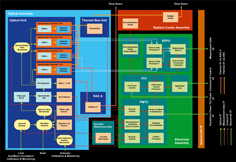
|
| Fig.
3-2 |
Optical configuration level 1. (graphics: DLR-IMF, modified after SJT
1996) |
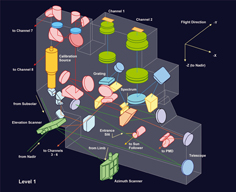
|
| Fig.
3-3 |
Optical configuration level 2. (graphics: DLR-IMF, modified after SJT
1996) |
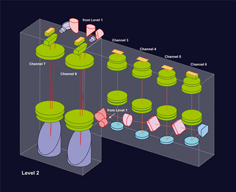
|
| Fig.
3-4 |
SCIAMACHY
optical ‘trains’. Each ‘train’ defines a path for the measured light
through the instrument to the detectors. Light sources can be external
or internal. (graphics: DLR-IMF and SRON) |
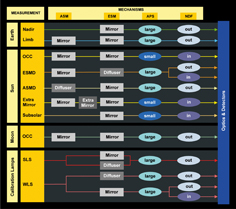
|
| Fig.
3-5 |
Sketch of SCIAMACHY’s TCFoV and observation geometries. (graphics: DLR-
IMF) |

|
| Fig.
3-6 |
ESM scanner on vibration test adaptor. The leftmost rectangular opening
is the Nadir Calibration Window. (photo: EADS Astrium) |
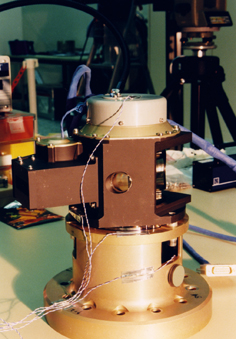
|
| Fig.
3-7 |
The RETICON (top) and EPITAXX (bottom) linear detector arrays. (photo:
SRON) |
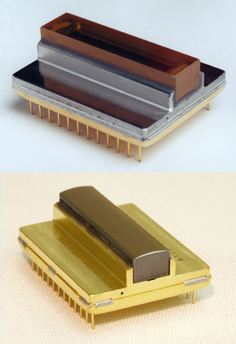
|
| Fig.
3-8 |
Single SCIAMACHY detector module (left) and the full complement of 8
detector modules (right). (photo: SRON) |
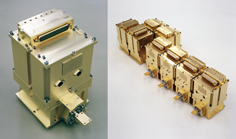
|
| Fig.
3-9 |
The signal-tonoise ratios for all channels as obtained during OPTEC-5
tests. The ratios were determined for minimum and maximum radiance signals.
(graphics: DLR-IMF) |
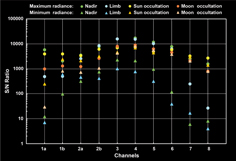
|
| Fig.
3-10 |
Heat
pipes from optical bench to RAD A (top) and cryogenic heat pipes from
detectors 7 & 8 to SRC (bottom). (photo: EADS Astrium) |
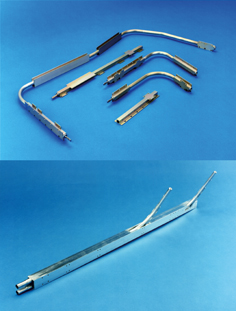
|
| Fig.
3-11 |
The Simplified Engineering Model of the EA with ICU (1), PMTC (2), SDPU
(3) and DBU (4). (photo: EADS Astrium) |
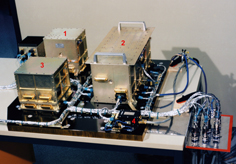
|
| Fig.
3-12 |
Structural Model of the OA showing the SCIAMACHY design with detectors
(1), ESM with Nadir Calibration Window (2), nadir baffle (3), RAD A
(4), SRC (5) and Thermal Bus (6). (photo: ESA) |
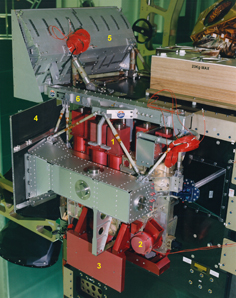
|
| Fig.
3-13 |
Integration of the OA. (photo: Dutch Space) |
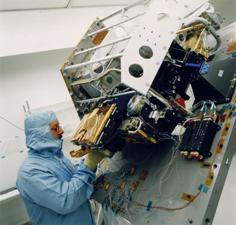
|
| Fig.
3-14 |
ENVISAT integration on the ESTEC Hydra vibration test facility. The
instruments are covered with MLI. SCIAMACHY is the only instrument located
on the front panel (top right corner). (photo: ESA) |
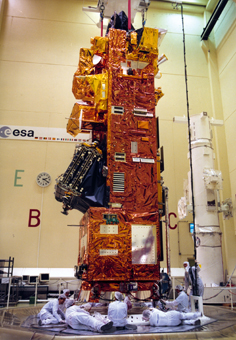
|